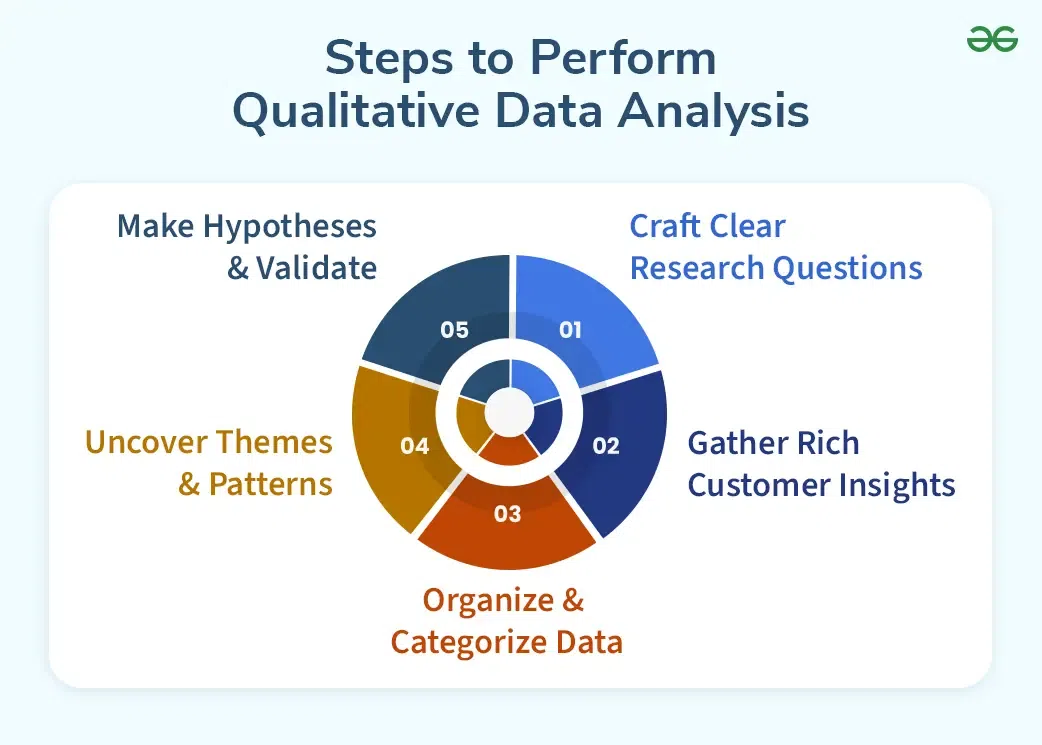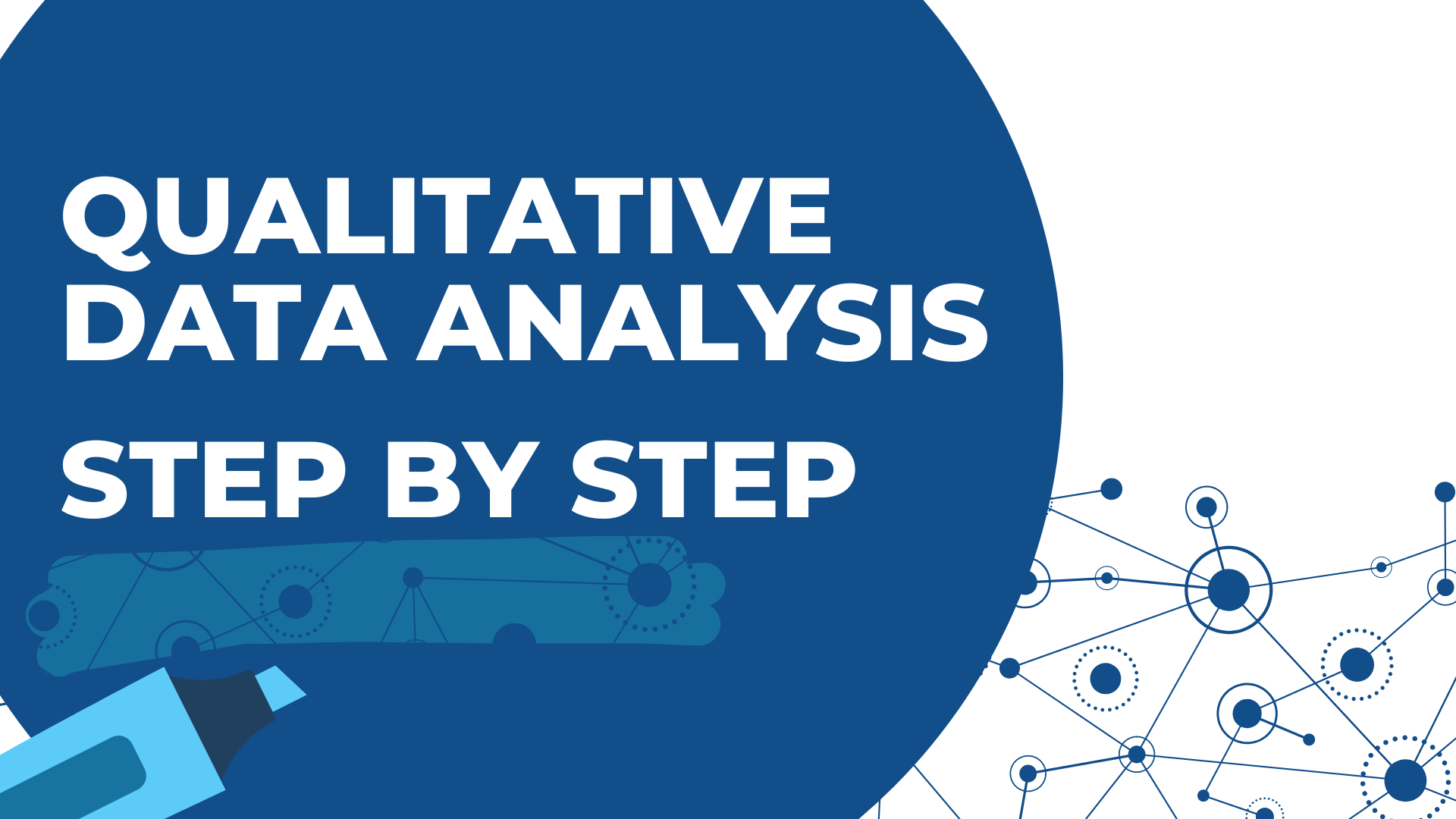Challenges with Qualitative Data Analysis|2025
Overcome challenges with qualitative data analysis with expert guidance and support. Get accurate, insightful solutions tailored to your research needs. Start today!
Qualitative data analysis is a critical component of research, particularly in social sciences, education, healthcare, and other fields where human behavior and experiences are studied. While it offers depth and insight into complex phenomena, qualitative data analysis also presents unique challenges. This article delves into the common challenges of qualitative data analysis, highlights methodological concerns, and explores how these issues impact research outcomes. For those looking for more detailed information, resources like “Challenges with qualitative data analysis PDF” and “Challenges of qualitative research PDF” can provide additional insights.
Volume and Complexity of Data
Qualitative research often involves large volumes of unstructured data, such as interview transcripts, open-ended survey responses, field notes, and audio or video recordings. The sheer volume and complexity of data can make analysis overwhelming.
Challenges:
- Data Management: Organizing and storing large datasets can be daunting.
- Time-Consuming: Transcribing, coding, and analyzing qualitative data require significant time and effort.
- Consistency Issues: Ensuring consistency in coding and interpretation across multiple data sources is difficult.
Solutions:
- Use qualitative data analysis software like NVivo, Atlas.ti, or MAXQDA to manage and organize data efficiently.
- Develop a clear coding framework and involve multiple coders for consistency.
Subjectivity and Bias
Qualitative research relies heavily on the researcher’s interpretation, which can introduce subjectivity and bias into the analysis.
Challenges:
- Researcher Bias: Preconceptions or personal beliefs can influence data interpretation.
- Participant Bias: Responses from participants may be influenced by social desirability or researcher presence.
- Lack of Objectivity: Ensuring neutrality in qualitative research is inherently challenging.
Solutions:
- Use strategies like member checking, peer debriefing, and reflexivity to minimize bias.
- Maintain detailed audit trails to document decision-making processes during analysis.
Difficulty in Generalization
Qualitative research focuses on in-depth exploration of specific contexts, making it difficult to generalize findings to broader populations.
Challenges:
- Limited Sample Size: Small, non-random samples limit generalizability.
- Context-Specific Findings: Results are often tied to specific settings or groups.
- Transferability Issues: Applying findings to different contexts can be problematic.
Solutions:
- Emphasize the richness and depth of findings rather than generalizability.
- Provide detailed descriptions of contexts to allow readers to determine transferability.
Methodological Challenges in Qualitative Research
Qualitative research methods often face scrutiny for their methodological rigor.
Challenges:
- Lack of Standardization: Absence of universally accepted guidelines for qualitative analysis.
- Ethical Dilemmas: Protecting participant confidentiality while providing rich descriptions.
- Inter-coder Reliability: Ensuring agreement among researchers during coding.
Solutions:
- Adhere to established frameworks like grounded theory, thematic analysis, or phenomenology.
- Use anonymization techniques to protect participant identities.
- Conduct regular team meetings to discuss and resolve coding discrepancies.
Challenges of Data Analysis in Research
Data analysis in qualitative research requires balancing depth with clarity, which can be particularly challenging.
Challenges:
- Data Overload: Extracting meaningful themes from extensive datasets.
- Thematic Saturation: Determining when enough data has been collected and analyzed.
- Presentation of Findings: Translating complex themes into coherent narratives.
Solutions:
- Use systematic approaches like coding hierarchies or thematic frameworks.
- Conduct iterative data collection and analysis to achieve thematic saturation.
- Employ visual aids like mind maps or flowcharts to present findings clearly.
Limitations of Qualitative Research
Qualitative research faces inherent limitations that can impact its credibility and applicability.
Challenges:
- Time-Intensive: The research process, from data collection to analysis, is lengthy.
- Resource-Heavy: Requires significant financial, technological, and human resources.
- Perceived Lack of Rigor: Criticism of qualitative research as being less scientific compared to quantitative approaches.
Solutions:
- Combine qualitative methods with quantitative approaches for a mixed-methods study.
- Follow established qualitative research criteria like credibility, transferability, dependability, and confirmability.
- Clearly document research processes to enhance transparency.
Challenges of Quantitative and Qualitative Data Analysis
While qualitative research has its unique challenges, the integration of qualitative and quantitative data presents additional complexities.
Challenges:
- Incompatibility of Methods: Differences in data types and analysis approaches.
- Integration Issues: Difficulty in merging qualitative themes with quantitative findings.
- Resource Constraints: Managing both qualitative and quantitative analyses simultaneously.
Solutions:
- Use mixed-methods frameworks like convergent parallel design or explanatory sequential design.
- Clearly define integration points during the research planning phase.
- Allocate sufficient time and resources for both types of analysis.
Qualitative Problems Examples
Real-world examples highlight the practical challenges of qualitative research:
Example 1: Interview Transcripts
A researcher conducting in-depth interviews with 50 participants struggles with transcribing and analyzing the large dataset within the project’s timeline.
Example 2: Focus Group Dynamics
During a focus group discussion, dominant participants overshadow quieter voices, leading to biased data.
Example 3: Observational Studies
An ethnographer’s presence influences participant behavior, skewing observations.
Solutions:
- Use transcription services or software to save time.
- Employ skilled moderators to balance focus group dynamics.
- Minimize researcher presence or use unobtrusive methods.
Conclusion
Challenges with qualitative data analysis are multifaceted, ranging from managing large datasets to addressing methodological concerns. By understanding these challenges and employing effective strategies, researchers can enhance the rigor and reliability of their qualitative studies. For those seeking more in-depth guidance, resources like “Challenges with qualitative data analysis PDF” and “Challenges of qualitative research PDF” offer comprehensive insights. Navigating these challenges effectively ensures that qualitative research continues to provide valuable, nuanced contributions to scholarly and practical fields.
Needs help with similar assignment?
We are available 24x7 to deliver the best services and assignment ready within 3-4 hours? Order a custom-written, plagiarism-free paper





